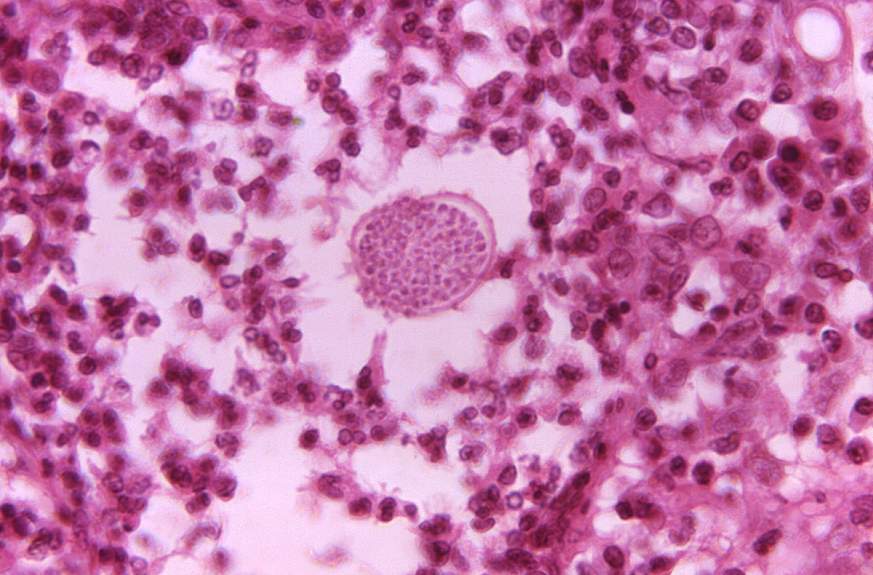According to that noted medical journal Rolling Stone, “Climate Change Is Ushering in a New Pandemic Era” in which “A warming world is expanding the range of deadly diseases and risking an explosion of new zoonotic pathogens from the likes of bats, mosquitoes, and ticks”. And we’re not out of the headlines into the text yet, where some people who are scientists say we are all going to die, probably in a disgusting way, because all effects of warming are bad and all bad things are effects of warming.
For instance Colin Carlson, a biologist with Georgetown University’s Centre for Global Health and Security, said, “climate change is going to sicken and kill a lot of people. Mosquito-borne diseases are going to be a big way that happens.” And no less a personage than American COVID-19 point person Dr. Anthony Fauci, long-time director of the National Institute of Allergy and Infectious Diseases, recently coauthored a paper saying “We have entered a pandemic era” and according to Rolling Stone, “The reasons for this new era of pandemics are complex, but as Fauci and Morens point out, one of the main drivers is the climate crisis, which is shaking up the natural world and rewriting disease algorithms on the planet.”
The climate crisis is rewriting disease algorithms. Gosh. Scary stuff. And how do they know and how bad is it? Well, you know how it goes. All effects of warming are bad and all bad things are effects of warming. Hence, Rolling Stone says, “Thawing permafrost in the Arctic is releasing pathogens that haven’t seen daylight for tens of thousands of years.” And are these worse than ones that have flourished since it got warm? Of course. And there’s more. Because “The Vibrio bacteria that causes cholera, a diarrheal disease that haunted big cities like London and New York in the 19th century and still kills tens of thousands each year, thrives in warmer water. An even more deadly strain of the same bacteria, Vibrio vulnificus, while rare, has been detected more and more frequently in bays and estuaries on the East Coast, particularly around Chesapeake Bay” and it can cause effects from stomach-ache if ingested to “flesh-eating horror” if it gets into a wound.
OK. Some bad things like warmth. But so do many good things. And some bad things don’t like warmth, right? No. Not a chance. At least not in this vivid portrayal of the end times in which “the biggest impact may be on the emergence of new pathogens from animals. Through intensive agriculture, habitat destruction, and rising temperatures, we are forcing creatures to live by the cardinal rule of the climate crisis: adapt or die.”
Uh, wasn’t that the cardinal rule of evolution since life began? Are you seriously claiming that now that there’s a “climate crisis” organisms suddenly have to cope with changing circumstances for the first time in the history of the Earth? Or are you just writing boilerplate no one will question?
If so you’re not alone. The climate cliché is now everywhere. Banks have “ambitious climate action” plans. A recent otherwise solid paper from Canada’s Macdonald-Laurier Institute on the importance of military preparedness and the hazards of overstretching the military by diverting it to domestic emergency response predictably threw in that “As climate change is likely to increase the frequency of wildfires and floods, demand for domestic operations is expected to increase apace.”
Likely? How so? Climate change has not increased their frequency so far and nor has anything else because they have not become more frequent and outfits like the IPCC do not predict that they will either. But climate change certainly is likely to increase the habit of genuflecting at the green altar, which that paper does four times.
So does the local toll road, at least for central Ontarians. In its “Sustainability Report“ for investors, Highway 407 declares that while pandemics are bad for business, “we continue to deliver an exceptional driving experience”. And of course “407 ETR recognizes the effects of increased frequency of extreme weather events due to climate change, such as heavy rainfall resulting in flooding and more extreme winter conditions.”
Once again climate change has not increased rainfall or flooding, in Ontario or globally, and we thought warming was meant to mean less snow not more. But what do mere facts matter when we are all going to die?


